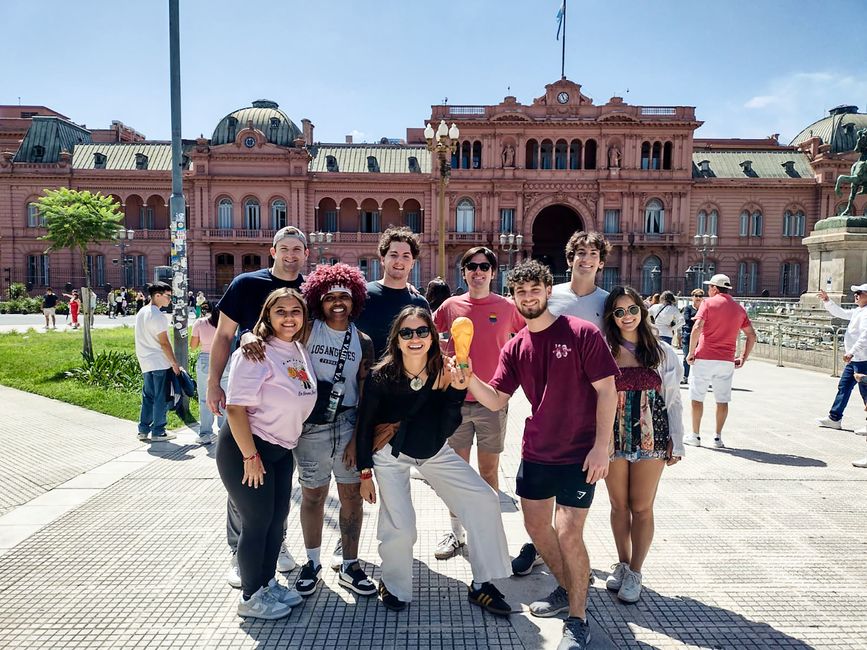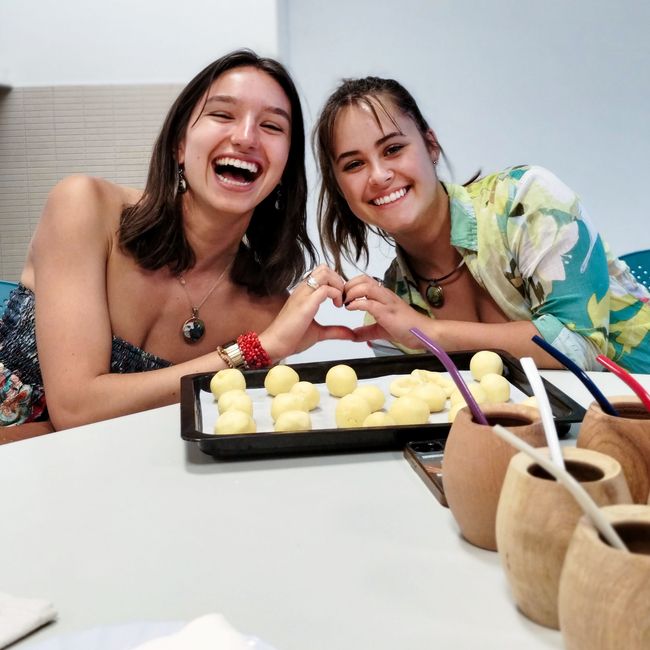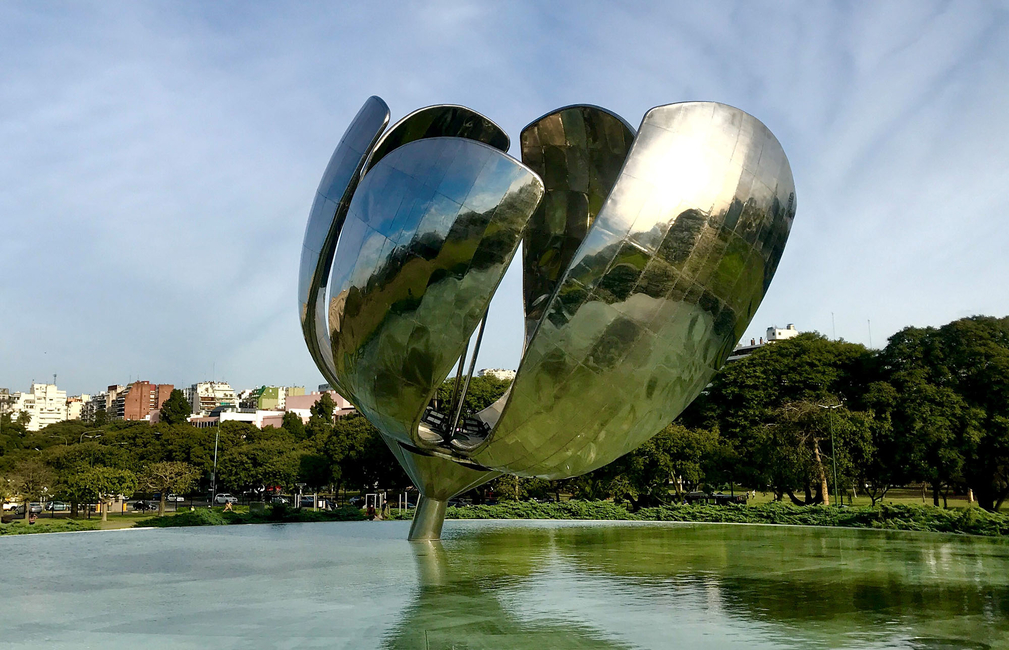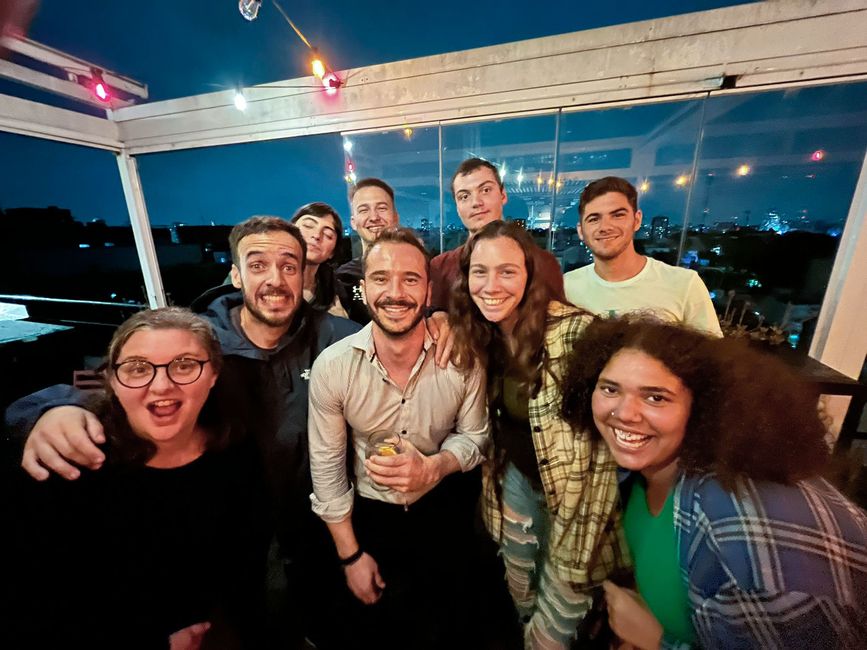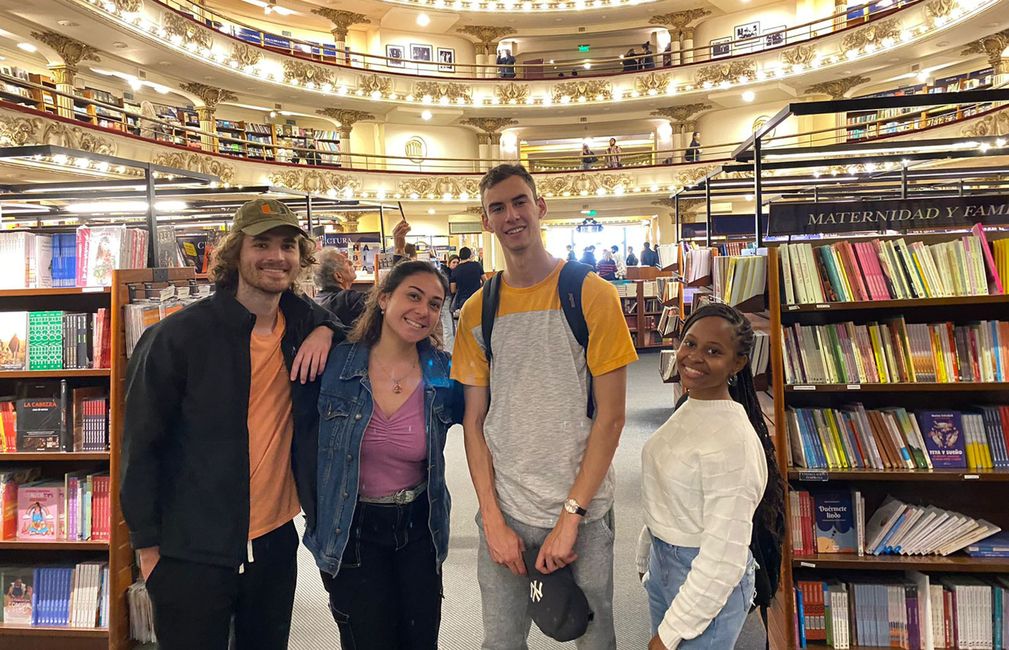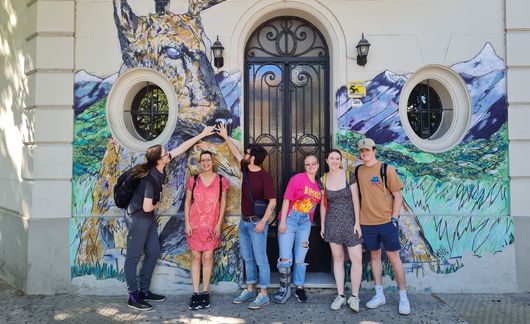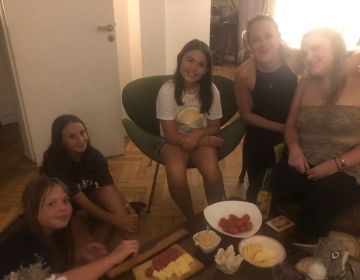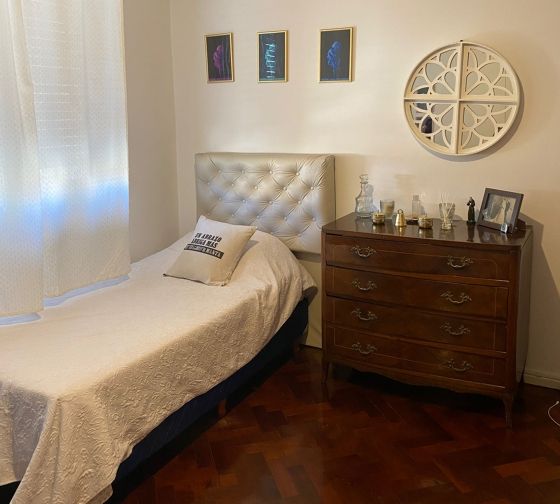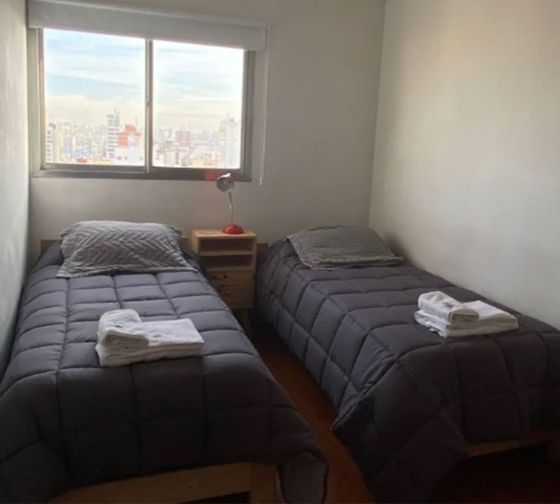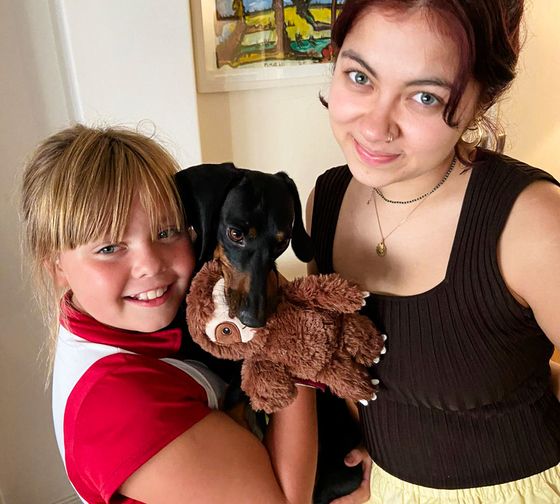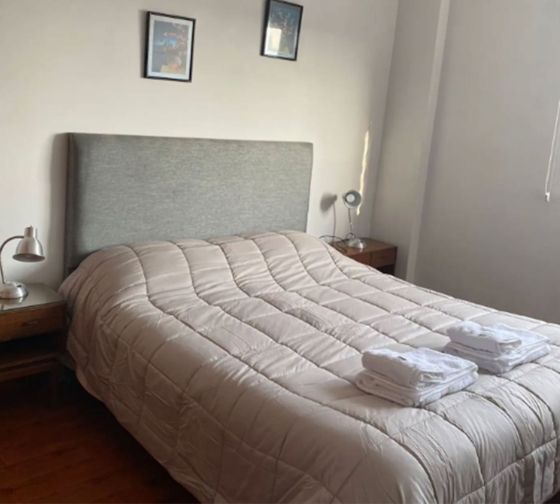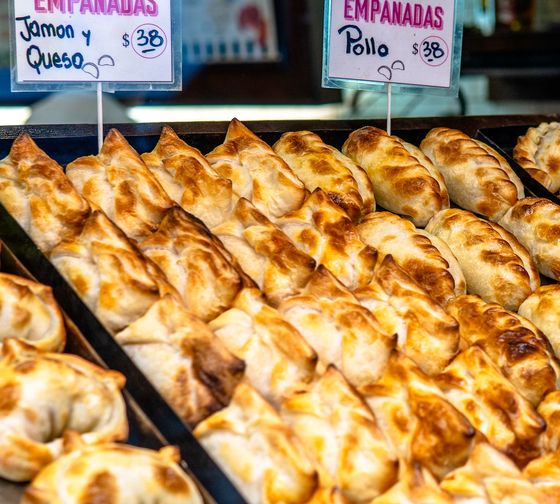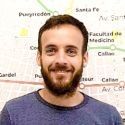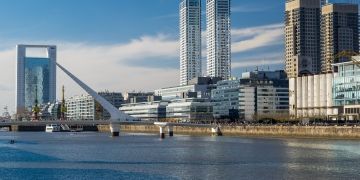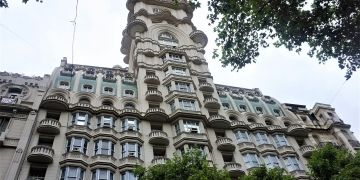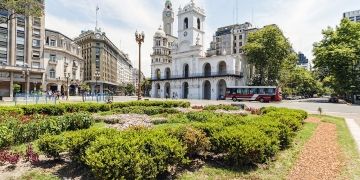
Semester in Buenos Aires
New for Spring 2025!
Unique Experiences
Explore Argentina
and its lively culture, history, and artistic scenery
Get into the swing of the Argentine life
by living with a host family, doing volunteer work, and joining a local interest group
Embrace Buenos Aires' renowned culture
from its love of tango to its savory cuisine
300
PLAYS PERFORMED EVERY WEEKEND
500 K
DOGS IN BUENOS AIRES
734
BOOKSTORES
Your Destination
The streets and avenues of Buenos Aires and its 48 distinct neighborhoods offer cultural outings, varied gastronomy, lively nightlife, and beautiful parks and green spaces. Discover the diversity of Buenos Aires, a melting pot of cultures where immigrants from all around the globe converge with indigenous American heritage and the Latin way of life.
As an international student, you will embark on your daily routines commuting by an efficient metro system and bus system. College campuses at partner universities offer an array of activities and opportunities to students, as well as courses in English, which allow you to pursue your required credits without the hardships of a language barrier. At lunchtime, the college cafeterias will surprise you with healthy, hearty, homemade food, and an opportunity to catch up with new friends.
Afternoons are often spent exploring Buenos Aires´ cultural attractions, such as museums and art galleries, with friends or CIEE peers in customized cultural outings. Evenings in Buenos Aires begin with the tantalizing aromas of fresh-baked bread and merienda time with friends and family, to later enjoying gatherings in parks, cafés, or theaters to socialize and appreciate the city's rich cultural offerings, from live music performances to theater productions.
CIEE wants all our students to feel welcomed, supported, and empowered to succeed while studying abroad. Local CIEE staff have provided details about conditions and cultural attitudes that students with marginalized identities might encounter in Buenos Aires.
The Culture
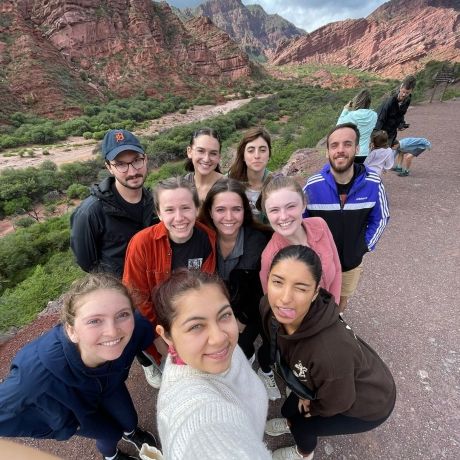
Excursions & Activities
Excursions are essential to creating an integral learning experience. Host Institutions provide cultural excursions, supplementing those provided by CIEE, which are designed to further support students in adapting interculturally, building understanding, and communicating effectively. The itineraries are designed to promote cultural self-awareness, cultural literacy, and the ability to bridge cultural gaps. Through interactive activities and exercises, students are encouraged to consider issues of culture, identity, values, beliefs, and assumptions. Ultimately, students develop competencies to expose themselves to new and unfamiliar experiences. Specific destinations and content will vary from semester to semester depending on local conditions.
Examples include the following:
- Take a tango class and join a milonga. Milonga refers to a musical genre, an Argentine ballroom dance similar to the tango, and a popular event where people dance tangos, walls, or milongas. Every week, different cultural centers all around the city host a tango class and milonga for all of those who dare to be intoxicated by this typical porteño dance. Remember, it takes two to tango!
- Experience a day in the Argentine countryside at a local estancia, immersing yourself in the rich traditions and rural heritage of Argentina. This event combines outdoor activities, food, music, and equestrian traditions in a picturesque estancia setting. Join this day-long celebration for an authentic glimpse into rural life in the region.
- Join an Argentine empanada cooking workshop led by a cuisine expert. Explore the secrets behind these famous savory pastries. Cook, chat, and enjoy the process with friends and a knowledgeable instructor. End the workshop by savoring the freshly baked empanadas together.
- Relax Buenos Aires-style at a festival, and watch culture in motion with musicals, dance, and theatre performances, or experience the Argentine passion for soccer.
- Join a group that shares your interest – art, sports, culture, community – and connect with Argentine students. You can also join weekly café gatherings to compare school, idioms, and more with Argentine peers while you practice Spanish.
- Get to know the different neighborhoods of Buenos Aires by discovering their history, peculiarities, and enjoying their food.
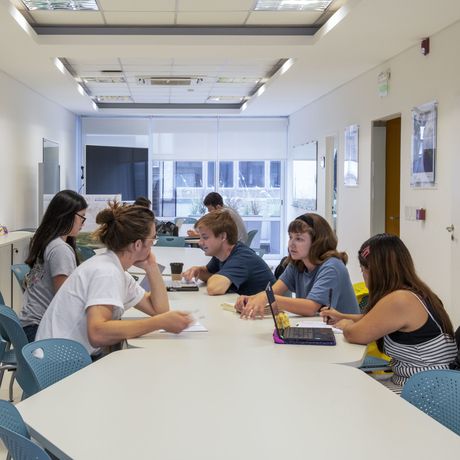
Academic Projects
A For-Credit Internship allows students the opportunity to have practical work experience in a company or non-profit within a variety of industry sectors. In addition, students participating in an internship program have a weekly classroom component, which provides academic support to their practical experience.
A For-Credit Directed Independent Research is for qualified students who have demonstrated academic rigor and curiosity toward a particular research topic. Independent research topics will be approved by the CIEE Buenos Aires Center Director and home institution and should ideally reflect a topic that is relevant to Argentina. To be accepted into this course, students must submit a structured proposal with topic of exploration, significance of research topic as it relates to Buenos Aires/Argentina, methodology, a literature review, and a schedule of research milestones. Upon research completion, students will present their findings to a panel of academics.
Program Blogs
Top 20 Argentinian Slang Words and Phrases You Must Know
Heading to Buenos Aires, the cosmopolitan capital of Argentina? If so, now’s the time to brush up on your lunfardo or Argentinian Spanish slang! Mastering the Spanish language goes beyond... keep reading
Tips for Studying Abroad in Buenos Aires, Argentina
By: Lauren Jablon 1. GO EASY ON YOURSELF. Studying abroad, while it sounds amazing, has its ups and downs. Feelings of homesickness are completely normal and everyone experiences them at... keep reading
Argentinian Culture: The Kiss, Language, and Time
By: Josie Stephens The Kiss One cultural behavior Argentinians take part in is the kiss (beso) on the cheek. In the US, typical greeting behaviors are a handshake or a... keep reading
Housing & Meals
Housing
CIEE Buenos Aires offers diverse housing options to ensure you're comfortable in your home away from home. From homestays to shared apartments, we will strive for your accommodation preferences to be met. Additionally, all housing options are located in neighborhoods with convenient access to public transportation, shops, cafés, and eateries.
Standard Housing: Includes a single room at a homestay or a double room at a shared apartment or residence hall located within 60 minutes of CIEE Buenos Aires.
Homestays: Experience real, day-to-day life in Buenos Aires by living with a typical Argentine host, such as families with young children, single professionals, young couples with no children, and older couples whose children visit but do not live at home. Homestays feature a kitchen, living room, and bathroom shared with the host.
Shared Apartments/Residence Halls: Apartments and residence halls boast kitchens, common areas, and laundry facilities shared with other students.
Select Housing: Includes a single room in a shared apartment or residence hall located within 45 minutes of CIEE Buenos Aires. Apartments and residence halls boast kitchens, common areas, and laundry facilities shared with other students. Select housing requires an additional fee.
Select Plus Housing: Includes a single room in a shared apartment or studio located within 30 minutes of CIEE Buenos Aires. Apartments boast kitchens, common areas, and laundry facilities shared with other students. Select Plus housing requires an additional fee.
A note: The default criterion to assign housing is first-come, first-served; however, other factors may also be considered. If we cannot accommodate your first housing choice, we'll let you know before you arrive.
Meals
Homestays: Include two meals per day (breakfast and either lunch or dinner). Host families and students arrange their own meal schedules. Students are responsible for the remaining meal, either preparing it at home or eating in one of the many restaurants and cafés throughout the city.
Apartments/Residence Halls: Meals are not included.
Academics
Students have flexibility to design their own academic load taking options from the following scheme:
- Courses taught in English at top Argentine universities: Universidad Torcuato Di Tella and Universidad del Salvador
- For those proficient in Spanish, there is the option to take courses in Spanish at Universidad del Salvador, subject to Spanish Level Placement in CIEE
- Students can also opt for courses delivered in English and/or Spanish by CIEE
Before your arrival onsite, you will have a one-on-one academic counseling with local staff to review your options and decide whether your proposed schedule is logistically feasible (commuting between campuses may take between 30-45 minutes).
Universidad Torcuato Di Tella (UTDT), Av. Figueroa Alcorta 7350, Ciudad Autónoma de Buenos Aires, Argentina
University Torcuato di Tella is one of the most prestigious universities in Argentina and Latin America. It is known for its high-quality standards and reputation among international university’s rankings. It has a broad range of academic offerings, with 11 graduate courses and more than 30 postgraduate courses. With around 10,000 students and a state-of-the-art campus, its study areas include Architecture and Urban Studies; Arts; Political Science and International Studies; Law; Economics; Education; Social and Historical Studies; Math and Statistics; Business; and Design.
Universidad del Salvador (U. Sal) Av. Callao 801, Ciudad Autónoma de Buenos Aires, Argentina.
The University of Salvador is a Jesuit university which was officially established in 1958. The university is in downtown Buenos Aires and has campuses on other parts of Argentina. The university has six schools: agronomy, art and architecture, design, modern languages, oriental studies, and veterinary medicine. Courses are taught at both undergraduate and graduate level.
Course Information
Academic Projects
Communication, Journalism, and Media
Agriculture
Social Sciences
Languages and Cultural Studies
Literature, Linguistics, and Writing
Psychology
The following list of courses constitutes a representative sample of course offerings through our partner universities and is subject to change. Some courses are offered once a year, in either the spring or fall semester.
Universidad Torcuato Di Tella, English
- Comparative Criminal Law
- Corporate Finance I & II
- Current Topics of Human Rights through Film
- Current Political Issues of Latin America
- Data Science and Media Art for Storytelling
- Dictatorship & Political Activism: the 60s & 70s in the Southern Cone
- Ecology, Sustainability and Cultural Production in Latin America
- Environmental Economics
- European Politics
- Foundations of Happiness for Effective Leadership
- Genocide and Human Rights in the 20th Century
- Identity, Politics, and Gender in Argentina
- Inflation & Disinflation in Argentina
- International Marketing
- Latin America in Sounds & Images: Fashion, Music & Cinema of the 20th & 21st Centuries
- Painting and Drawing for Non-Artists
- Public International Law
- South American Biodesign: from biomanufacturing to entrepreneurial culture
- Web Design, Development & Social Media
Universidad Del Salvador, English
- Intercultural Negotiation
- Neuroscience III
- Contemporary International Agenda
- Contemporary International Politics: Middle East Geopolitics
- Urban Inequalities in Latin America - Service Learning (partially taught in English)
- Tourist Geography I
- Accounting
- Translation Methodology (partially taught in English)
- Interpretation Methodology (partially taught in English)
- English & North American Culture
- Compared Structures
- English Literature
- English Normative
- Literary Translation (partially taught in English)
- Specialized Translation
- History of Great Britain I
- History of Great Britain II
- North American History & Literature
- English Cultural Area Linguistics & Literature
- Political & Social Processes in Latin American Region
- Intercultural Management
- Psychology of Family
- Legal English: Introduction to Common Law
- Introduction to Marketing
Universidad Del Salvador, Spanish
- Introducción a las Ciencias Sociales
- Filosofía Social y Política
- Macroeconomía
- Teoría de las Relaciones Internacionales
- Introducción a la Filosofía
- Psicosociología del Turismo
- Metodología de Investigación en Ciencias Sociales
- Técnicas Cuantitativas de Investigación en Ciencias Sociale
- Procesos de la Economía y Sociedad Mundial Contemporánea
- Principios de Macroeconomía
- Introducción a la Administración
- Matemática I
- Introducción a las Ciencias Económicas y Empresariales
- Gramática Española
- Historia y Teorías de la Educación I
- Educación, Comunicación y Tecnología
- Antropología Social y Cultural
- Psicología del Desarrollo
- Sociología de la Educación
- Educación No Formal
- Educación y Psicología
- Introducción al Conocimiento Científico
- Neurociencias I
- Psicología Comunitaria
- Psicología de la Familia
Note: This course listing is for informational purposes only and does not constitute a contract between CIEE and any applicant, student, institution, or other party. The courses, as described, may be subject to change as a result of ongoing curricular revisions, assignment of lecturers and teaching staff, and program development. Courses may be canceled due to insufficient enrollment.
"(GI)" denotes courses that originated at CIEE's Global Institutes and that are offered at multiple CIEE sites.
Scholarships & Grants
CIEE offers scholarships and grants annually to help students like you make your study abroad dream a reality.
Students who apply to this program are eligible for the following scholarships and grants:
- Ping Scholarships for Academic Excellence
- CIEE Gilman Go Global Grant
- MSI Grant
- Trailblazer Grant
To be considered, submit the CIEE Scholarships & Grants application within your CIEE program application.
Dates & Fees
You get more for every dollar when you study abroad with CIEE, because our high-quality programs include everything from excursions to insurance. There are no hidden charges, and no disappointing surprises when you arrive.
Program |
Application Due |
Start Date |
End Date |
Fees & Housing |
|---|---|---|---|---|
| Program Spring 2025 | Start Date TBD* | End Date TBD* | Fees & Housing $16,500 |
*Dates for this program are provided as tentative dates. Please consult with your study abroad advisor to confirm dates before purchasing your flights.
To help you budget, keep in mind that students are responsible for the cost of international airfare, local transportation, books and supplies, visas, and personal expenses. In addition, your college or university may charge additional fees for study abroad, or may require you to receive a transcript via CIEE's School of Record, which carries an additional fee of $500.
Program Fees
CIEE offers the most student support of any provider in its program fee, including an airport greeting, full-time leadership and support, orientation, cultural activities, local excursions, pre-departure advising, and CIEE iNext travel protection with benefits.
Participation Confirmation = $300*
Educational Costs = $10,956**
Housing = $5,050***
Insurance = $194
Total Fees = $16,500Estimated Costs
Students are responsible and manage costs related to travel, meals, books, and personal expenses. Below are estimates for consideration.
Meals not included in program fee = $441†
International Airfare = $1,300††
Local Transportation = $168
Books & Supplies = $40
Visa Fees = $150
Personal expenses = $200†††
Total Costs = $2,299Optional Housing
CIEE accommodation options are detailed in the Housing section. Based on availability, Select or Select Plus Housing can be chosen during the application process for an additional fee. Housing is assigned on a first-come, first-served basis; however, other factors may also be considered.
Select Housing Fee = $750
Select Plus Housing Fee = $1,500
Financial Aid
CIEE offers the most grants and scholarships of any study abroad organization, including $8 million/year in travel grants, merit-based scholarships, institutional and MSI grants, and Gilman Go Global Grants.
*non-refundable fee
**direct cost of education charged uniformly to all students
***Housing fees listed are for financial aid purposes only and should not be considered a basis for calculation of refunds.
†For students in homestays, families provide 2 meals (breakfast and dinner). For students in apartments, you should budget approx. $292 per month for groceries if you plan on making your own meals, and more if you plan on eating out regularly.
††round-trip based on U.S. East Coast departure
†††$100 emergency fund + cell phone expense + toiletries
What's Included
Tuition
Housing
Pre-departure Advising
Advising before you depart to set goals and answer questions
Optional on-site airport meet-and-greet
Orientation
Introduction to your program plus practical information about living in your host city
On-site Staff
Full-time program leadership and support in your city
Cultural and/or Co-curricular Activities
Excursions and/or Study Tours
Travel Protection
CIEE iNext travel protection
24/7 emergency on-site support
Our Staff
Carolina Zumaglini
Center Director
Originally from Buenos Aires, Carolina is an experienced bilingual education consultant, historian, and professor with a vast background in developing and delivering international education programs, remote and face-to-face courses, collaborative...
Mariano Sañudo
Program Coordinator
Mariano holds a B.A. on Philology and a Master in Cultural Management. He has vast experience developing cultural programs and working with international students.
Bruno Nunes
Academic Coordinator
Bruno is from Brazil and lived in England and Italy before arriving in Argentina in 2014. He holds Bachelor, Master and Doctorate degrees in International Relations.
